Planning a lesson and designing instruction can be an exciting process. Delivering that lesson and interacting with students as they make your abstract ideas come to life is energizing. Assessment is a different story, often weighed down by myths and misunderstandings(Open Link in new tab).
We know that assessment is critical in order to effectively plan lessons, set meaningful learning goals for students, improve your teaching practice, and make informed decisions for your classroom or district. However, strategically planning student assessment and then digging into the data can be a tedious and time-consuming process — but it doesn’t have to be.
If you take a little time to study the purpose, types, and methods of assessment, you’ll soon know exactly what you want your students to learn and how to design the path to get them there. Start with these ideas:
Move Forward by Planning Backwards
It’s best practice to begin with the end in mind when designing instruction. Start with your objective, and then ask yourself what success looks like. What will serve as evidence of understanding (what students know) and mastery (what students can do)? Once you know where you’re going and what to look for, you can plan the teaching moves that will get you there.
- In this video(Open Link in new tab), Tch Laureate(Open Link in new tab) Sean McComb uses explicit success criteria to help students be more self-directed in their learning, while making progress towards the standards. Using a workshop model, Sean moves students through the learning process based on personal interest, curiosity, and individual needs. Notice how his goals and objectives inform the structure he designs for his classroom.
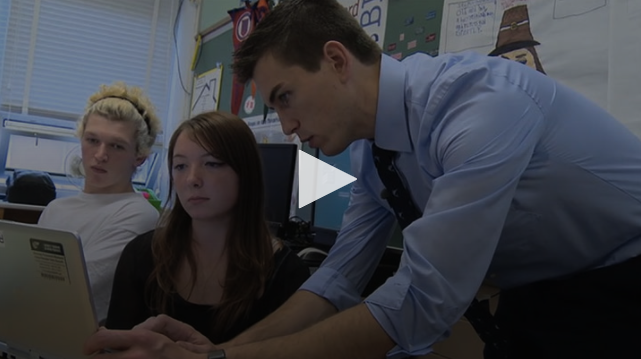 (Open Link in new tab)
(Open Link in new tab)VIDEO: Making Learning Personalized & Customized (Open Link in new tab)
Frequent Formative Assessment
Formative assessment strategies(Open Link in new tab) are some of the most important tools in a teacher’s toolbox because they move learning forward. The more frequently you assess student progress and use that data to improve your instruction, the greater impact these techniques (Open Link in new tab)will have on student learning.
If you teach “littles,” there are some great strategies that work well for assessing young learners(Open Link in new tab).
- In this video(Open Link in new tab), Tch Laureate (Open Link in new tab)Marion Ivey makes success criteria accessible to young learners so they can give targeted feedback to their peers.
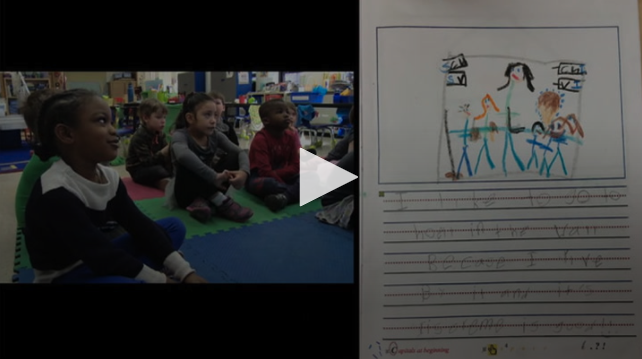
VIDEO: Targeting Learning with Success Criteria(Open Link in new tab)
Writing can be a powerful tool for assessing content learning in any subject area. When you read student writing, you see what students know and where their misconceptions may be.
- In this video(Open Link in new tab), watch how Kris Carey uses a strategy called My Thinking Logs to assess written language skills and content knowledge simultaneously.
- Students can also write out their thinking in the moment, even on their desks. Watch(Open Link in new tab) how Chris Maldonado uses his classroom tables for writing during collaborative work.
Exit slips are another great strategy for formative assessment at the end of a lesson.
- Check out Tch Laureate (Open Link in new tab)Maria Perryman’s innovative twist on exit slips in Assessing Students with Twitter Style Exit Slips(Open Link in new tab).
- If you have older students and you’re ready to move on to the real thing, consider having your students move to Twitter and tweet to share their learning(Open Link in new tab).
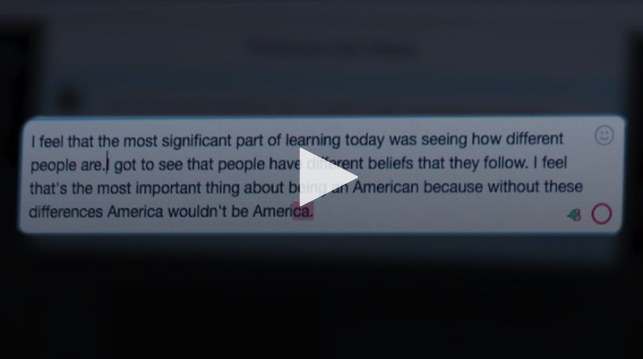 (Open Link in new tab)
(Open Link in new tab)VIDEO: Tweet to Share Your Learning(Open Link in new tab)
Make Feedback Meaningful
Students often skip over teacher comments and questions to focus on the almighty grade. That makes sense when the feedback is focused on an assignment that’s already been graded and it’s no longer possible for the student to improve. The key to great feedback, however, is to weigh in early in the process — when it’s still possible to adjust course — with development and improvement in mind.
- Think about testing without grades(Open Link in new tab) or delaying the grade(Open Link in new tab) to keep the focus on learning front and center.
- In Making Feedback Meaningful(Open Link in new tab), Tch Laureate(Open Link in new tab) Sean McComb employs small group instruction to give specific, targeted feedback to students who are all struggling with the same skill. Simultaneously, students who have mastered the skill are making progress as well, because Sean set them up with feedback prior to the lesson in the form of voice notes, color-coded highlights, and thoughtful, intentional comments in the margins of their work.
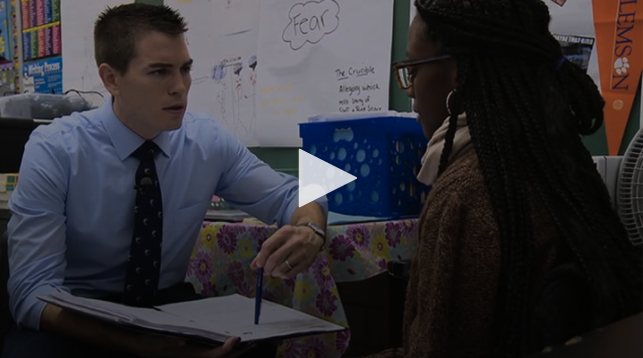 (Open Link in new tab)
(Open Link in new tab)VIDEO: Making Feedback Meaningful(Open Link in new tab)
- Students can have some pretty insightful opinions and you can learn a lot from them about what works in your classroom and what you need to work on — just ask(Open Link in new tab)! If you didn’t gather student feedback this year, consider how you might do it next year. And if you really want to work out the glitches in your instruction, try dogfooding(Open Link in new tab)!
Authentic Assessment for Deeper Learning
An authentic assessment requires students to apply what they’ve learned to a new, real-world problem or situation. This type of assessment is realistic, complex, and creative(Open Link in new tab). It allows for opportunities to practice, consult resources, receive feedback, and refine and revise performances or products. An authentic assessment may include an authentic audience as well.
- Watch Yvonne reflect on her growth as a learner and successfully defend a portfolio(Open Link in new tab) of her best work, dissertation style, in front of an audience of educators, peers, and community members.
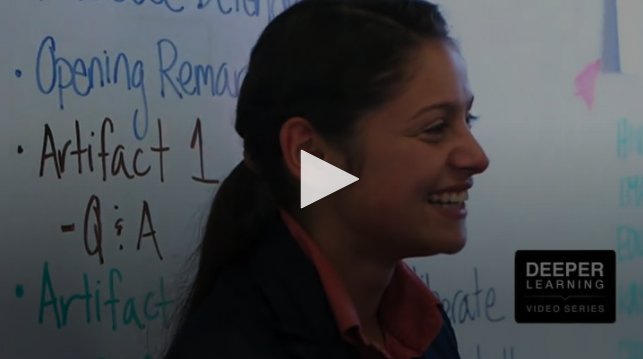
VIDEO: Student Profile: Portfolio Defense (Open Link in new tab)
- Check out this Tch Talks podcast(Open Link in new tab) to learn how creative assessment, with intention and some constraints, has the potential to turn ideas into action and push your students toward deeper learning and meaningful understanding.
- Find out how digital portfolios(Open Link in new tab) can shift your assessment focus.
- Discover how to give your students the benefits of authentic accountability and assessment through Share Your Learning(Open Link in new tab).
- Learn how to integrate assessment best practices(Open Link in new tab) into your projects to help you uphold rigor and student engagement.







